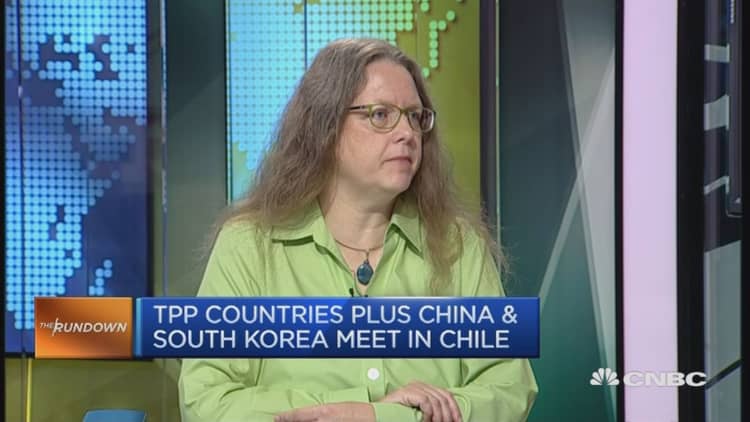
The 11 non-U.S. countries who signed on to the Trans-Pacific Partnership should realize that the trade pact can survive without buy-in from Washington, and that Japan could lead the way, an expert from the Asian Trade Centre said Wednesday.
"If you look at what the U.S. committed in the TPP, the reality is they did very little, in part because the U.S. market is already open," Deborah Kay Elms, executive director at the Asian Trade Centre, told CNBC.
She explained that through the U.S.-brokered trade pact, the U.S. pushed all 11 other countries – Australia, Brunei, Canada, Chile, Japan, Malaysia, Mexico, New Zealand, Peru, Vietnam and Singapore – to open their markets for American companies.
The reality is the other members would still have good access to each other's markets if the deal were enacted, even with the U.S. removed from the equation, Elms said.
Negotiations for the TPP stretched over a period of eight years, and the agreement was viewed as a major achievement given the diverse approaches and standards among member nations. But, those countries were left empty-handed after President Donald Trump pulled out of the agreement following his January inauguration.
Still, Elms told CNBC, the trade pact is not dead because Japan can still assume the mantle of leadership and set the rules of trade in Asia.
The challenge is that "this is an unfamiliar role for them, and they have not been seen as a leader in this region," Elms said of Japan.
Elms added that the TPP deal — along with the Asean-led Regional Comprehensive Economic Partnership (RCEP), which includes China as a partner — could be an opportunity for Asia to lead global trade at a time when protectionist sentiment is on the rise.

